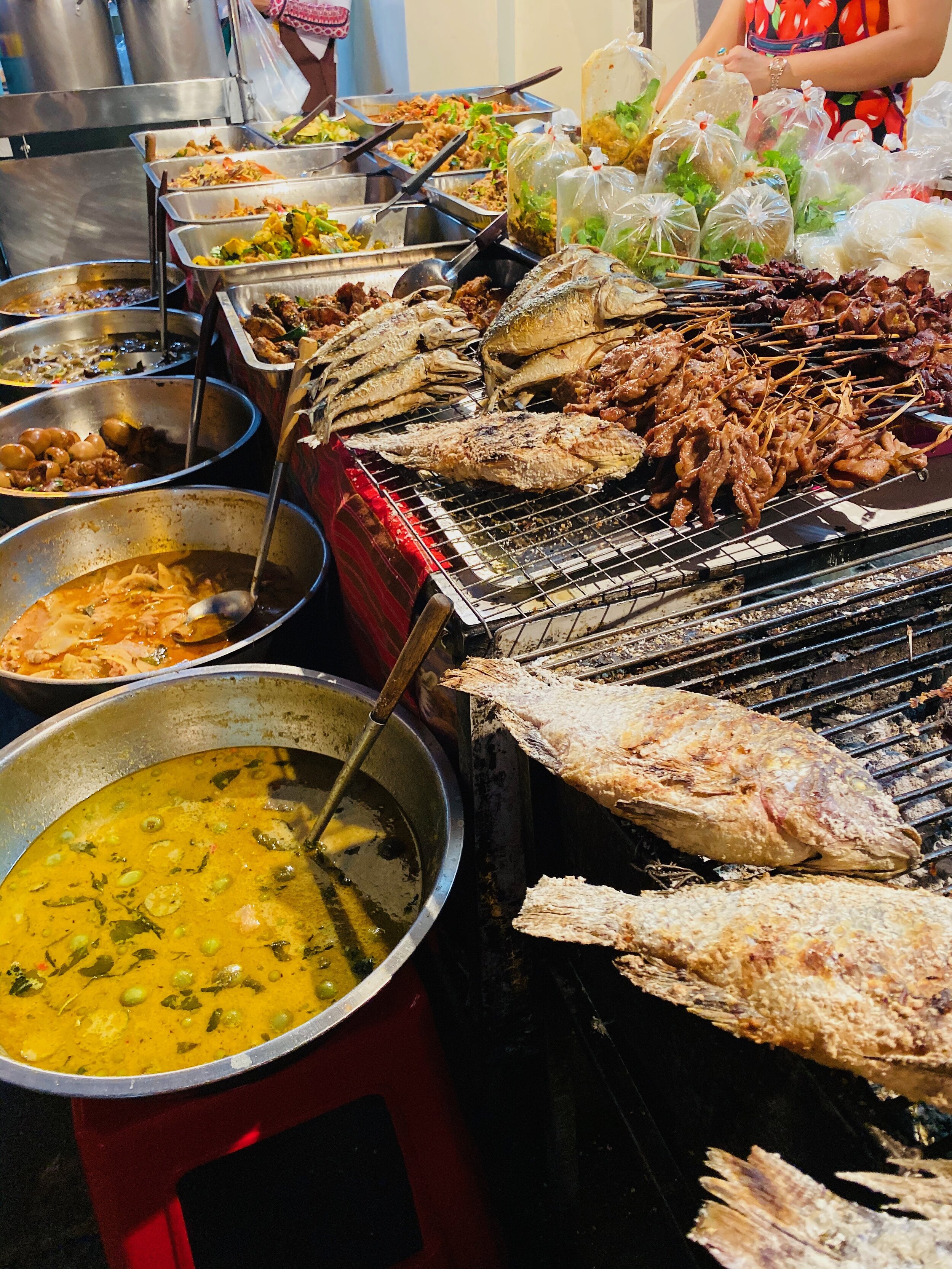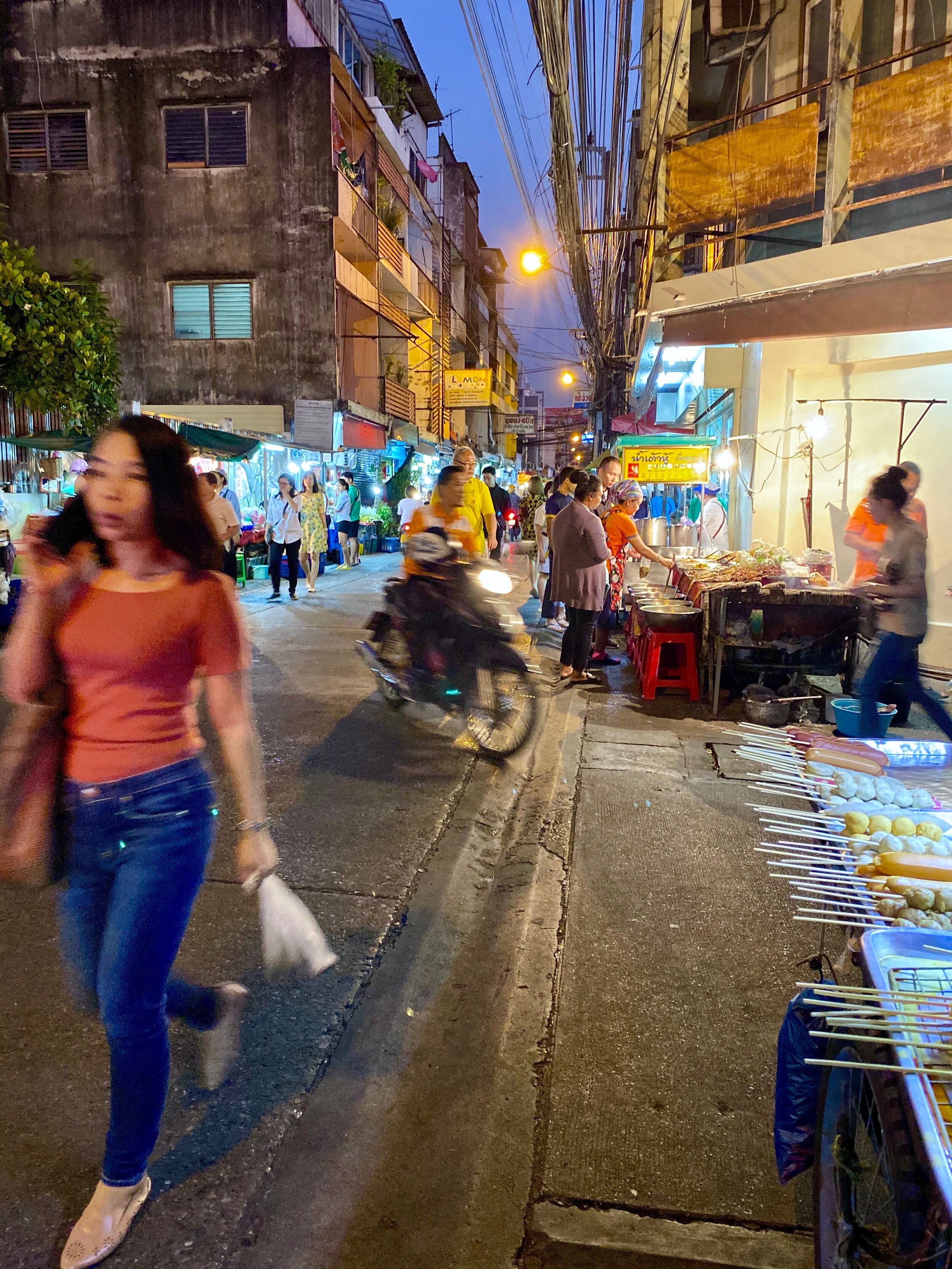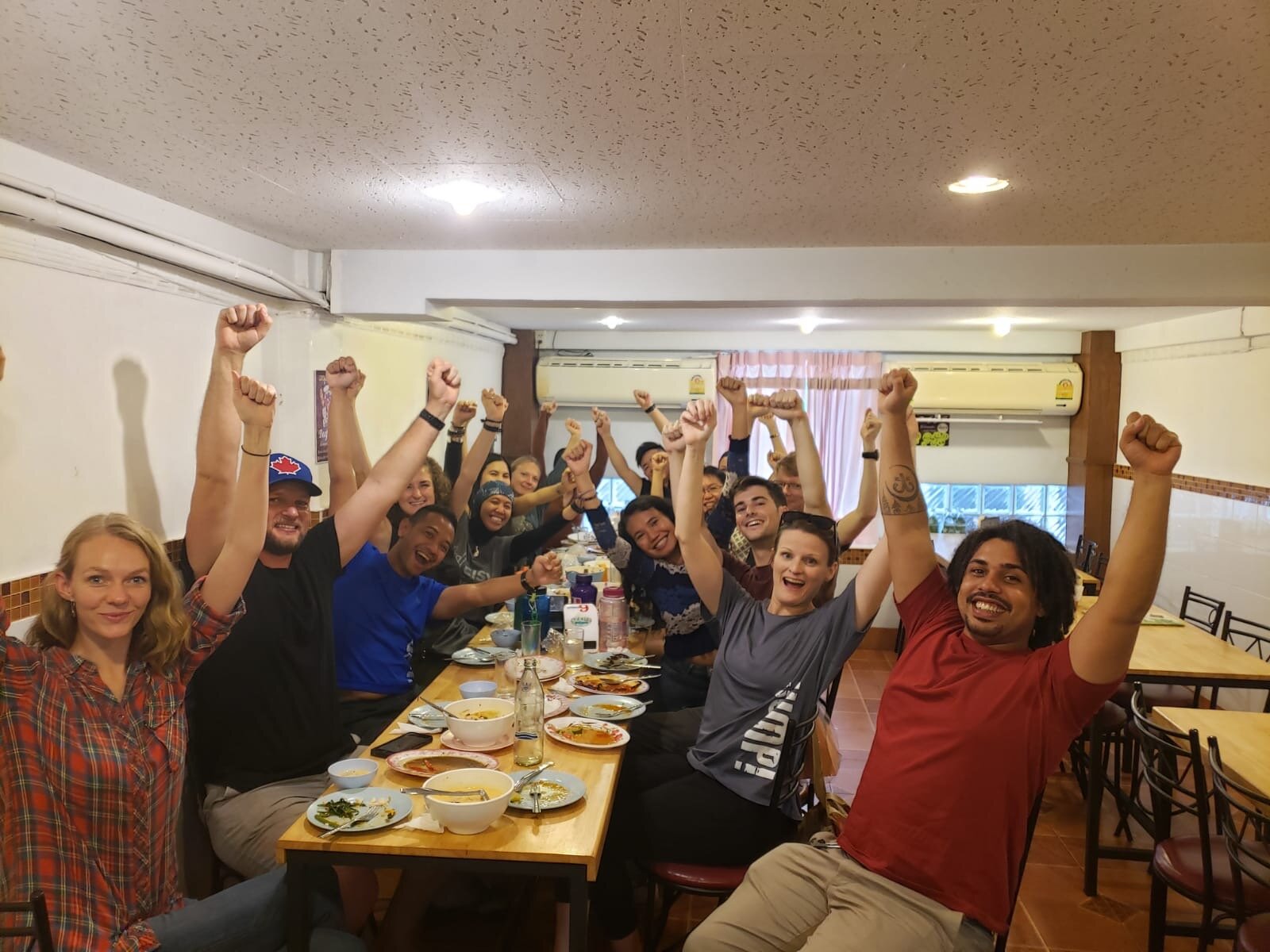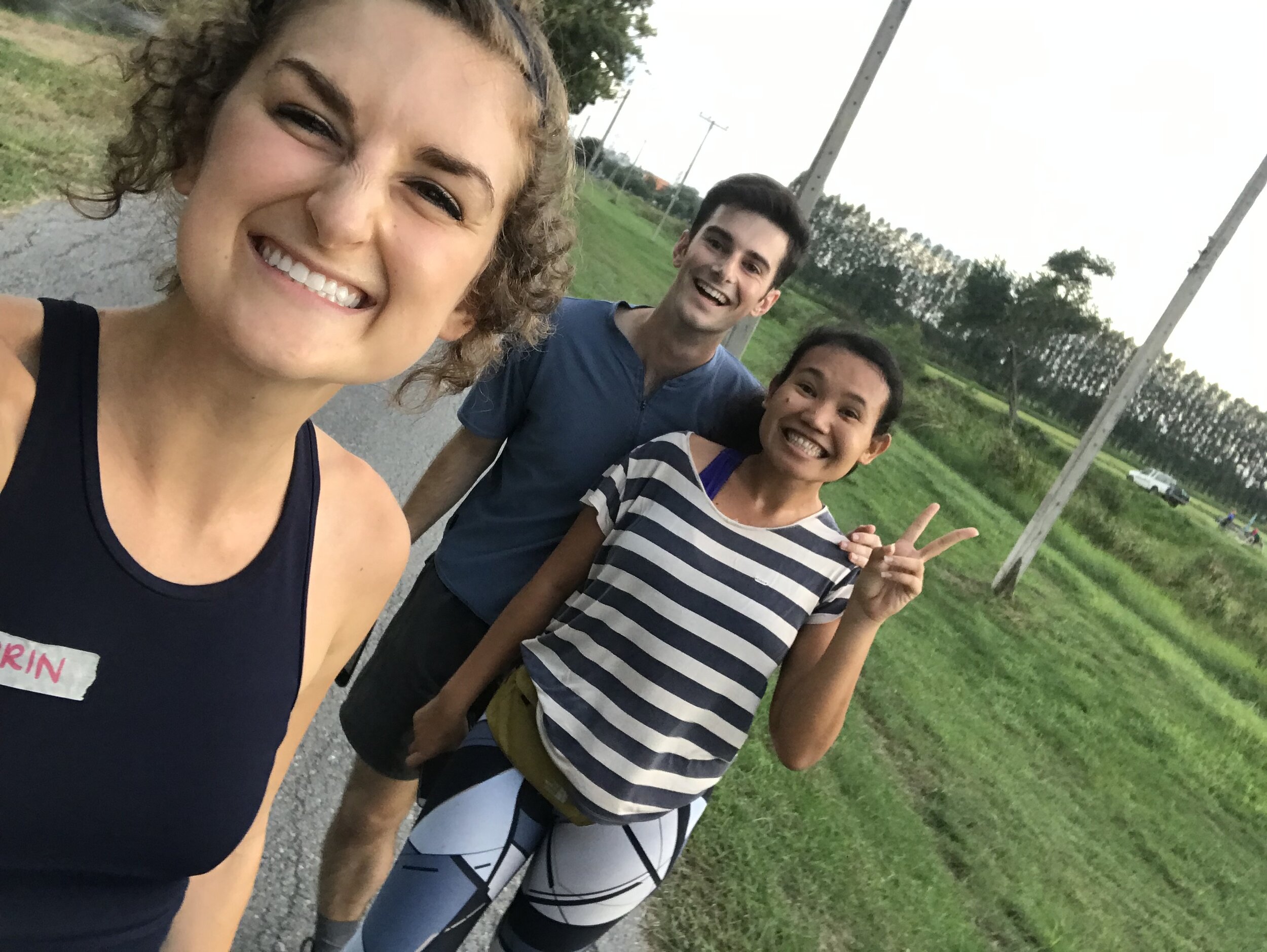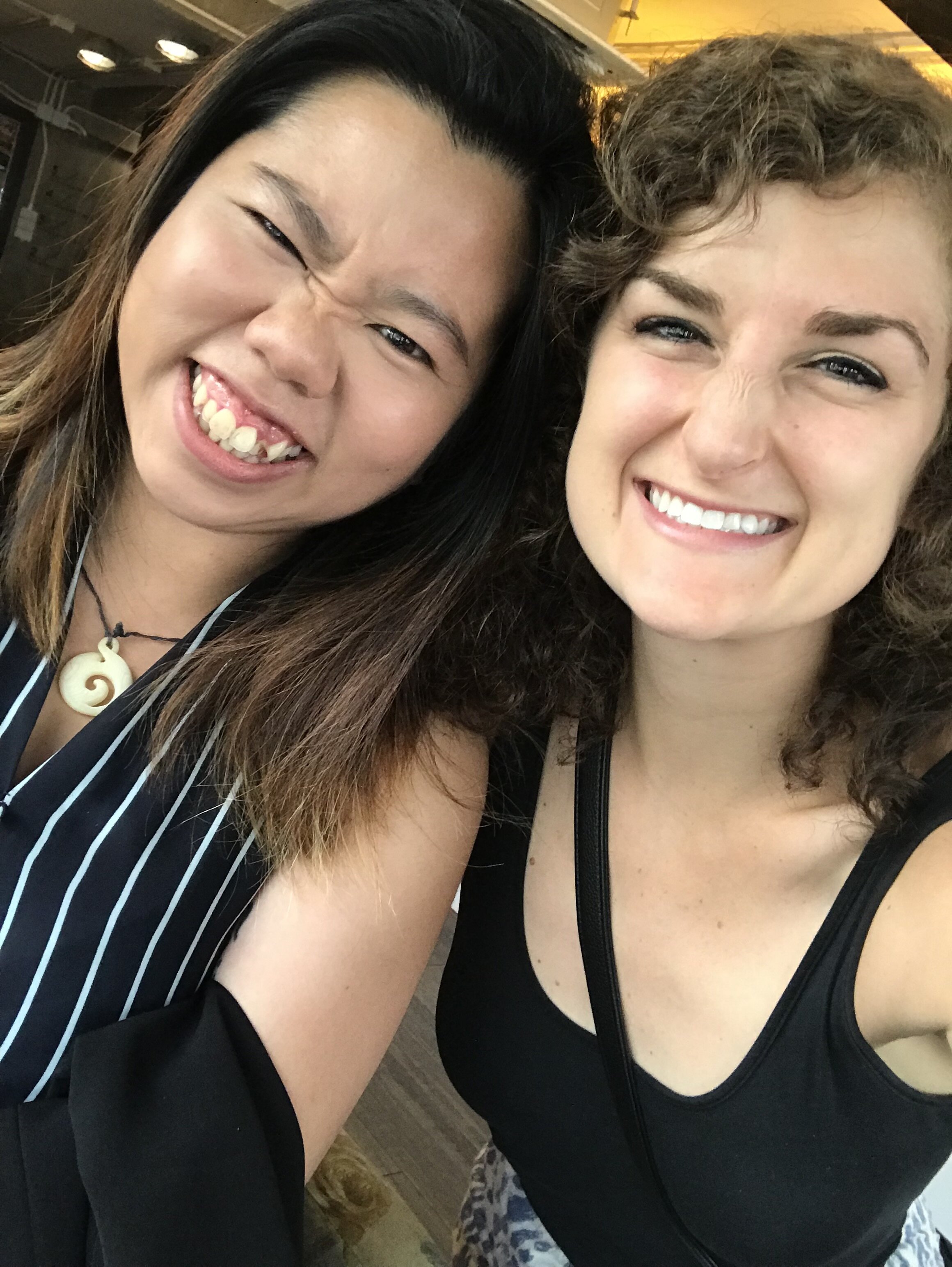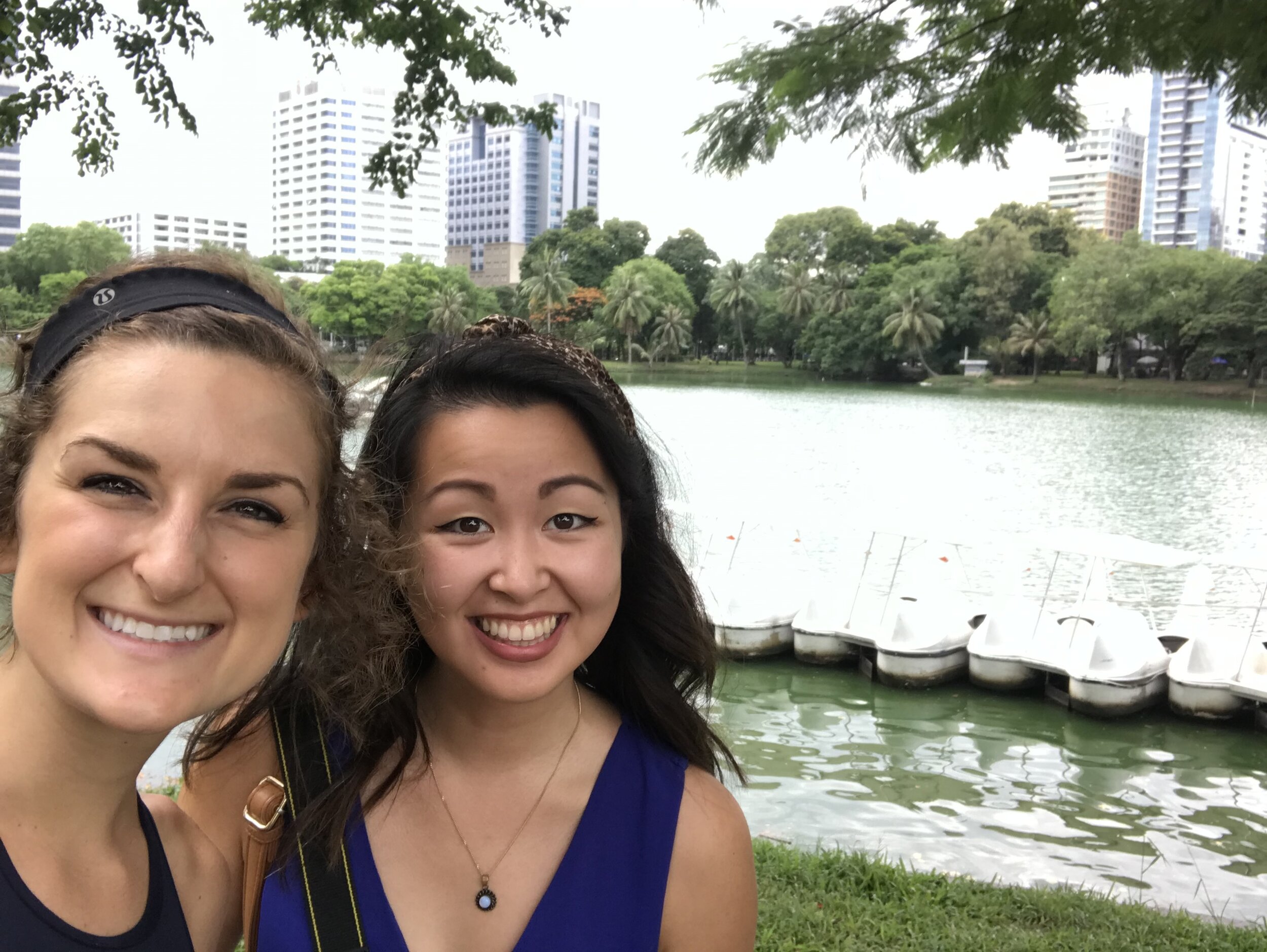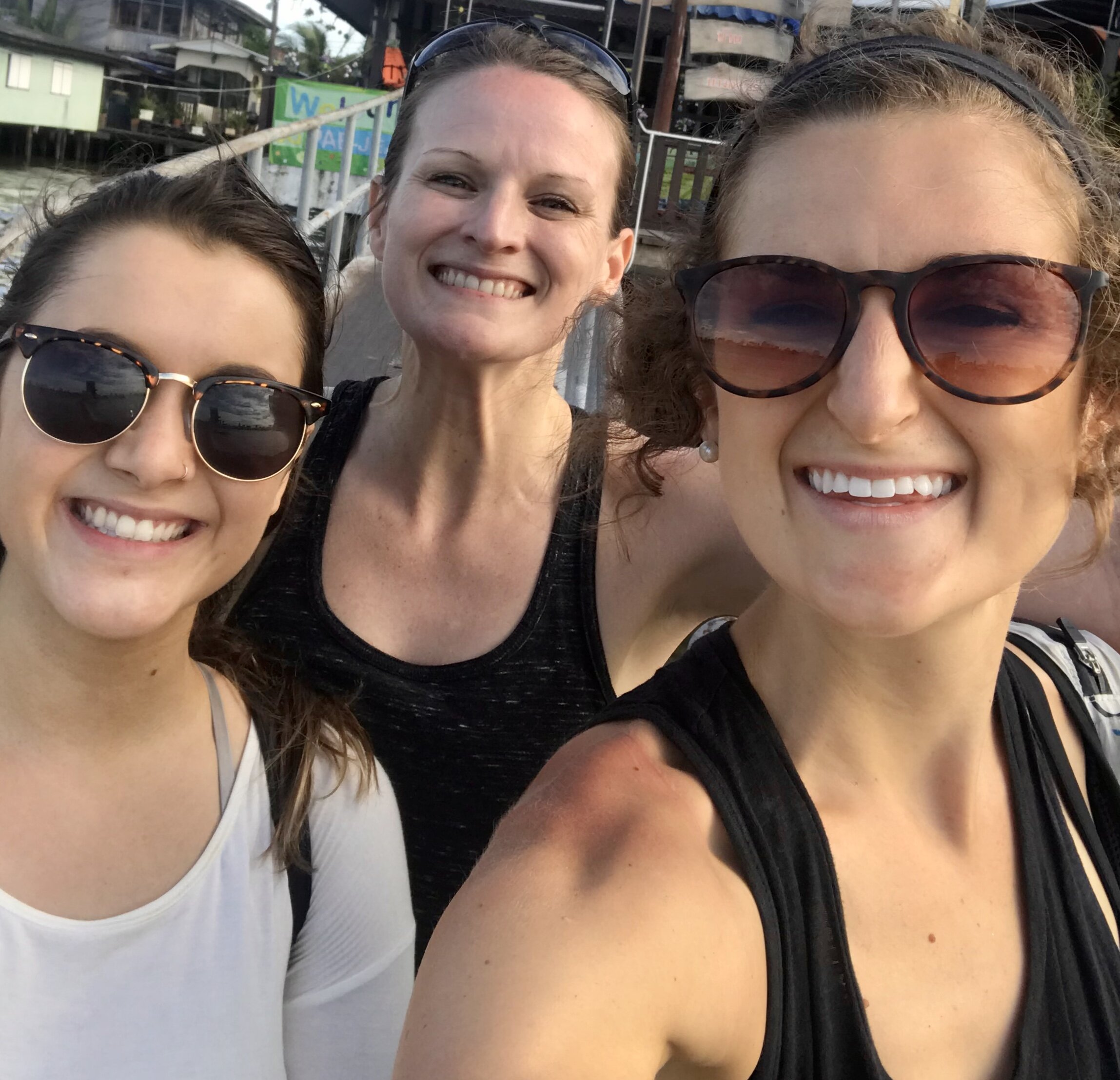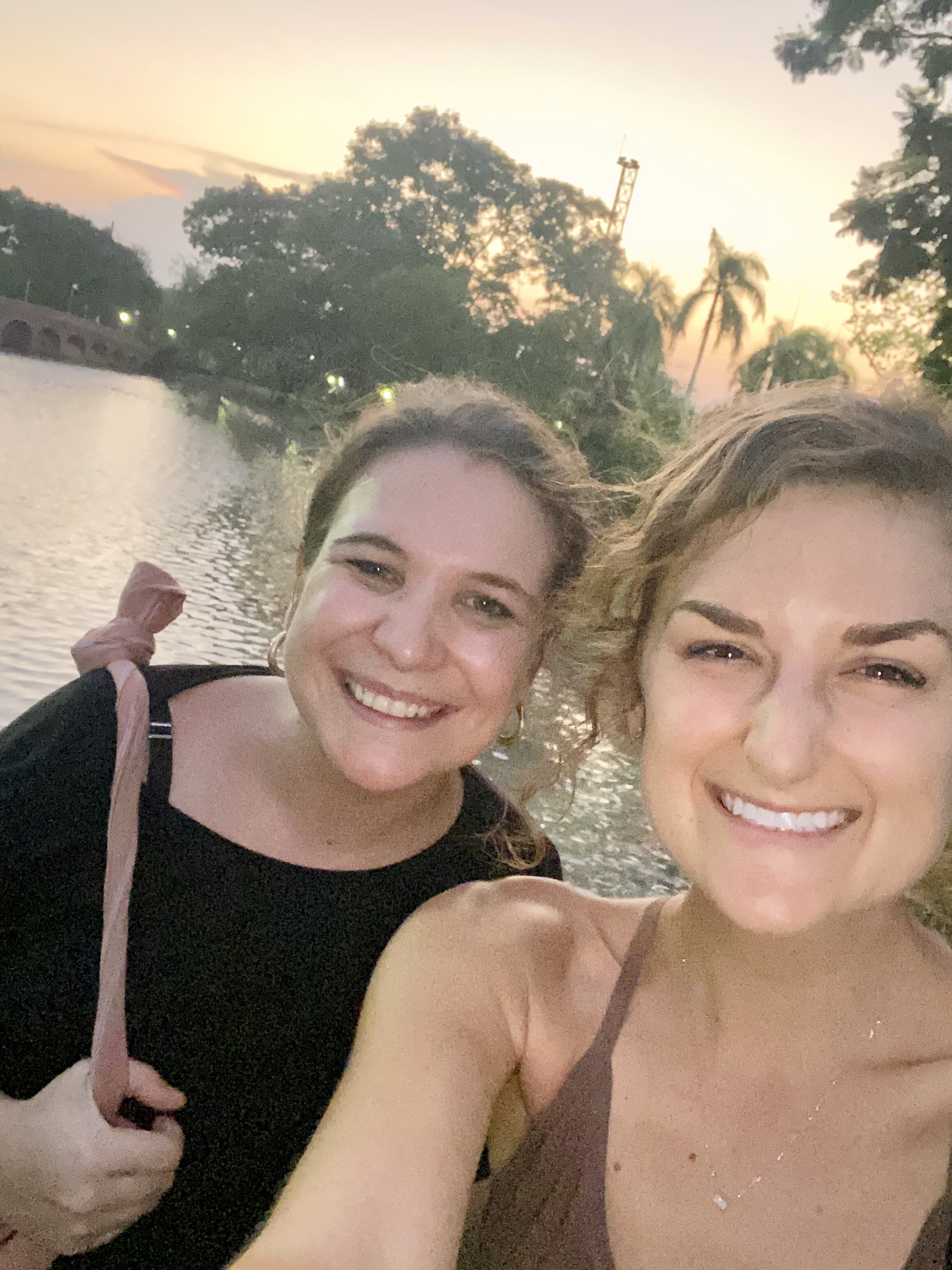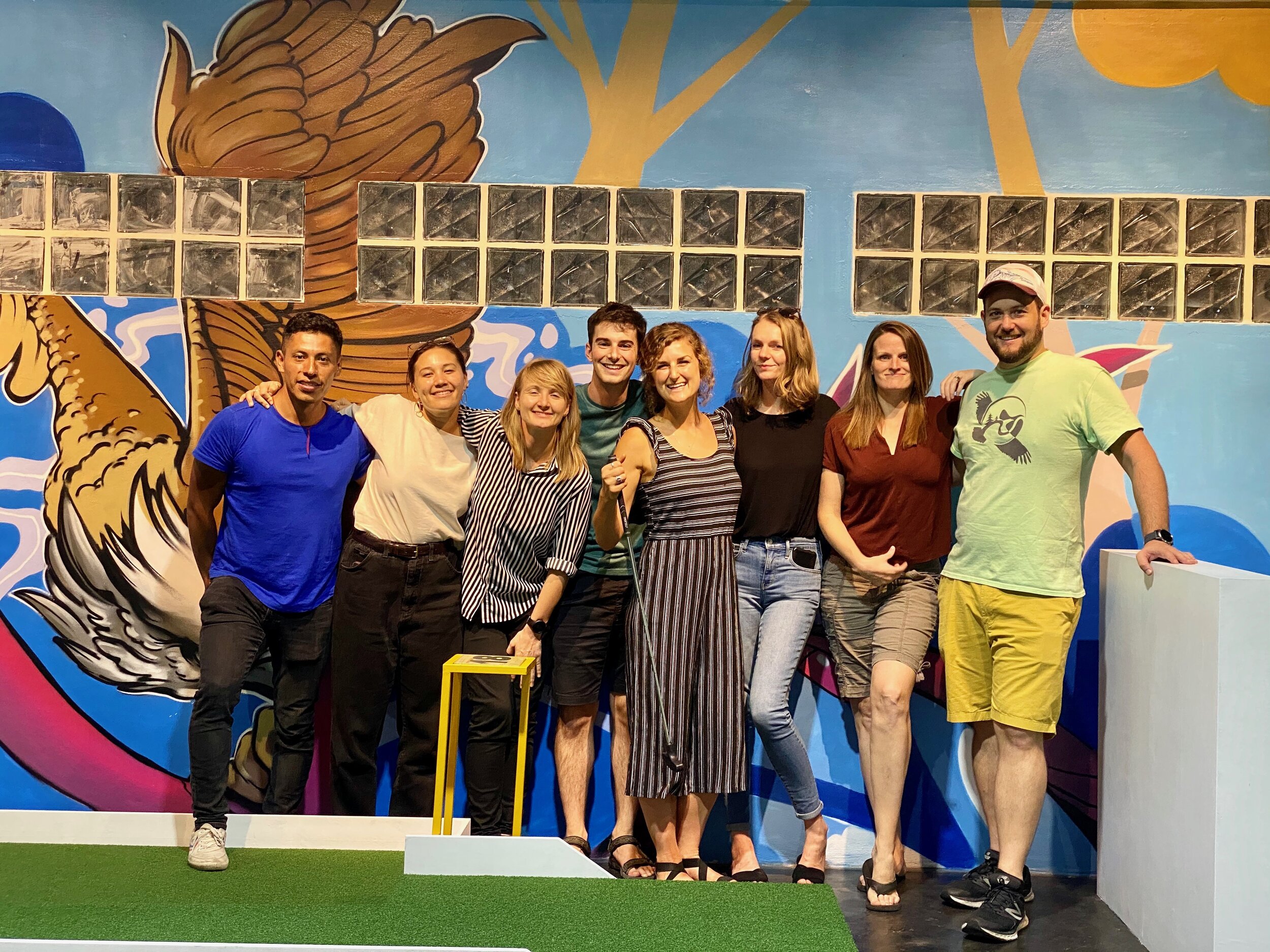Last Friday, I found out that I had to leave Thailand—my home and community. I needed to go quickly in anticipation of potential border-closure for either Thailand or the United States. My visa to stay would soon run out and leaving was the only way to fully prevent overstay penalties. There’s no guarantee that I’ll be back, which breaks my heart. In this circumstance, my options were limited as much as my time. I spent the weekend packing up my apartment and enjoying moments with people I love--simultaneously filled with immense gratitude for the precious individuals who belong in my life and with shattering disappointment for the unexpected uprooting.
From this experience and others over the past few years, I’ve slowly come to accept the paradoxical nature of life. I recognize I can only speak from my experience, but I believe the human condition is a paradox in itself. It’s the most confusing, depressing, thrilling, and liberating acknowledgment—every idea, understanding, and situation has a flip side. There’s as much beauty as there is pain in the contradiction. Through coming to this realization, I have felt the deepest lows and greatest highs—between moments of uncontrollable sadness to beaming and expansive joy, it has been a journey. One I know has not yet ended.
Just under a year ago, I thought I wanted to be back in the United States. I was ready to be near the comfort of familiarity after living in a small rural Irish village for two years. I look fondly on my time living in the Burren region of Ireland, but it was not an easy environment for my mental health. Instead of returning the states after graduation, I headed to the most unfamiliar place and fell in love. The intense sensory experience of daily life in Bangkok, inconceivable amount of remarkable individuals that I became friends with, and sense of enthusiasm and purpose I gained through working for an organization I truly believe in made my comfort level for life abroad do a 180. I was full of joy, contentment, and a great sense of purpose.
With the recent events surrounding COVID-19, I, among many others, have felt anxiety and uncertainty. From living in Asia during the rise of this coronavirus, the impacts have felt very close to home. Only in the past few weeks had the virus become a more pressing issue in western countries, including the United States. Just as things started to seemingly normalize in Bangkok, the narratives around the world disrupted the illusion of “cool.”
Media surrounding COVID-19 reshaped and increased fear and perceived danger throughout the world. I went to a yoga class and I was one of two in a room that’s usually full of people. The virus had been present in Thailand for months, but a couple of weeks ago, things felt fine at the gym, work, home, and in public. Though tough, in order to aid the community, everyone began taking more preventative measures against engaging in human contact. The streets felt more empty, events were canceled, most all organizations started working remotely, restaurants closed, and people actively socially distanced themselves. The changes that I witnessed in Thailand as the narrative in the United States* became increasingly driven by fear prove the power of connection we have throughout the world. It feels strange to celebrate our interconnectedness through a shared sense of alarm, but I think it is a crucial thing to remember.
On January 28th, when the virus was mostly affecting our friends in China, I made a post on Facebook which read:
“I go to a discussion group on Tuesday nights called Aristotle's Cafe. Tonight we discussed the ethics of quarantined individuals, specifically in light of the recent events surrounding the coronavirus. The discussion opened up ideas beyond just the ethics of quarantine. It led us to consider how we treat each other as we navigate collective challenges. From my perspective, there has been unnecessary blame and shame put on China surrounding the outbreak. I don’t think there’s room in the world for ugliness of any sort. I’m saddened to see some of this surface. One of the women at the discussion shared a photograph of a sign hung in a restaurant window that read ‘We are not serving Chinese people, sorry for the inconvenience.’ Promoted by health consciousness or not, statements like that perpetuate racism. The coronavirus—like any health concern— may be scary, but the fear surrounding it may be more unhealthy than the virus itself. The world is entering a future where we will likely be faced with challenges greater than we may be able to predict. I think it’s important to remember our personal and collective capacities for empathy, compassion, and productive action. We must be willing to support each other if we desire a decent future for all.”
Yes, COVID-19 has been declared a pandemic and it is infecting and affecting a huge percentage of our world population. We are ALL suffering in some way from it. This collective experience should not give us reason to compete, compare, and/or criticize. As an unprecedented world event, no one knows how to deal with it properly. Pointing fingers at who we think is “handling it wrong” is not effective, we have to be kind, show support, and know that this virus does not belong to anyone more than it belongs to everyone—in other words, we are all equally responsible. We can choose to worsen the problem or be part of the solution.
If I have learned anything from the notion of paradox, it’s that along with any uncertainty or fear comes great opportunity and potential. With despair comes hope. Discomfort generates creativity and self-reflection. Our present situation gives us an opportunity to learn, improve our actions for future events, and deepen our connection to people around the world. My own uncertainty has given me an opportunity to think deeply about my life and experiences.
One of the difficult effects of the virus is the impact it is having on the oil industry. It’s glaringly apparent to me that oil is not the most ethical industry, but it’s also no secret that my amazing, intelligent, and kind father is the president of an oil company in Oklahoma City. Despite this notion of ethical distaste for the industry and what it’s done to our globe, I owe it my education, my privilege in choosing a vocation based on my own passions, and my family’s livelihood. I believe that our society has systematically depended on its success for the health of our entire economic ecosystem. I thank it for my ability to see the world and gain perspective at a speed of which would be impossible without an equal or superior alternative for powering travel. I have it to thank (or despise) for being able to so easily take me thousands of miles back and forth from my homes on opposite sides of the world. I come to the conclusion that my relationship with oil is severely complicated. If it were a person, we would share enough drama for the next hottest reality TV show (get ready guilty pleasure enthusiasts).
I don’t think the oil industry is the worst thing in the world, nor do I think it’s the best. I think it’s important to be aware of both sides of the story. The opportunity costs associated with supporting things that seem “good” in the moment are not always worth it. The outcomes of our choices are only partially (if at all) perceived as we make decisions, and this idea scares me. At the same time, I am given hope because I know we can choose to be intentional about our actions, which will prevent deepening negative outcomes.
We are resilient as individuals, as nations, and as a global community. A virus doesn’t deserve to take away our joy and contentment. We can thank it for the wake-up call it’s given many of us to consider what matters most in life. We can also thank it for helping us check our own environment-harming behaviors as it has shown us how quickly behavior shifts compound and make a meaningful positive impact. These positive benefits may not be sustainable long term, but they COULD be if we choose to learn from them.
Much of this situation is out of our control, but we get to choose how we respond. I am focusing on my own resilience, acceptance, and abilities to take proactive measures. If we all refuse to give in to panic, lean in to supporting each other and take responsibility for our actions, it will be okay faster. The potential repercussions of adopting disinformation as truth, ignoring direction intended for slowing the spread, and treating people inhumanely through our actions and words are unimaginable.
Let’s not go there, so everything can get better.
Someone once told me “Protect your instinct to care.” In some moments, I wish I could care less, but this moment is not one of them. I hope you join me as I protect my instinct to care (even when it is not easy), let’s put on our toughest armor, demonstrate love and empathy towards our global community, and fight this virus for the good of humanity.
*I know there are people from other countries driving the narrative of panic, but I only feel confident discussing that of my home country.


